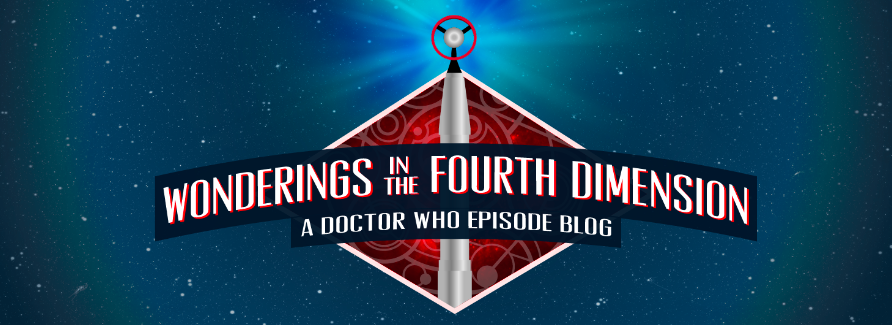Written by: Bob Baker and Dave Martin.
Companions: The Doctor, Jo Grant.
Monsters/Villains: The Marshal, Mutts.
Brief Synopsis: On the planet Solos, the sadistic Marshal is experimenting on the mutant natives.
Rating: 7/10.
The Mutants is not the best produced story ever, it's a bit pacey, quite long, the acting of a few members of the cast is more than a little suspect, and the monsters are somewhat under par. This story could easily be judged by and dismissed for all the above reasons. However it's the meaning and the message behind this story by which it should be measured. A story that clearly uses science fiction to draw parallels between the Mutts and Overlords of Solos and real life colonialism, apartheid and racism. The Mutants isn't rated very highly but Salman Rushdie thought enough of it to give it a mention in his infamous book, The Satanic Verses. I ask that you consider the following before judging this rough and ready story.
 |
| Salman Rushdie with his book The Satanic Verses. |
The story sees the Time Lords sending the Doctor on another mission, this time delivering a box to an unknown someone on the planet Solos. Arriving on a Skybase in orbit of the planet, the Doctor and Jo find the sadistic Marshal ordering his pet scientist Jaeger to attempt experiments to change the atmosphere of Solos making it breathable for humans but not for the native solonians (a perfect sci-fi parallel with colonialism). The Marshal, along with the other humans in attendance claim they are their to "help" the savage natives, and civilise them, but the Solonians want freedom from the overlords oppression and rule.
 |
| Paul Whitson-Jones as the Marshal and Geoffrey Palmer as Administrator. |
The cast assembled really shouldn't be too bad, Garrick Hagon (Biggs Darklighter, Star Wars and the undertaker Abraham in A Town Called Mercy) is our leading man Ky, Geoffrey Palmer makes a brief but excellent appearance as the Administrator, John Hollis as Sondergaard, Christopher Coll as Stubbs, Paul Whitson-Jones as the Marshal and George Pravda plays Dr. Jaeger.
 |
| Rick James as Cotton. |
I have to admit that The Mutants does boast some of the very worst acting in Doctor Who history. The side is let down by James Mellor who overacts terribly as native warlord Varan, and Rick James as the Skybase soldier Cotton, whose character name is even a reference to the cotton plantations used in colonial times. His dialogue is awful and take some of the responsibility but sadly he isn't the best actor either.
 |
| Garrick Hagon as Ky, beside the segregated transmat. |
Aboard Skybase there are separate cubicles for the transmat to Solos, marked 'Solonians' and 'Overlords,' showing a segregation similar to that of apartheid in South Africa. This segregation is driven by fear of the unlike and fear of difference. The people of Solos appear diseased and are gradually transforming into apparently savage mutant 'Mutts.'
Eventually we learn that the Solonians are naturally meant to mutate, but the Marshal and Jaeger's experiments with the atmosphere have sped up and changed the rate of mutation causing their fearful appearance. With the help of the Doctor, another scientist, Sondergaard (who was presumed lost on Solos) and a bit of radiation, Ky is able to open the time lords box, decipher the tablets within and complete his intended mutation.
 |
| John Hollis as Sondergaard. |
It's a clear comment on colonialism. A group of colonists arrive in a new place, they try to "help" the natives of that place by civilising them but all they actually achieve is restricting and halting the natives own ways by holding them to colonial expectations and standards.
Once Ky has completed his mutation he appears as highly developed being a kind of telepathic, floating rainbow angel. Showing what Ky and the natives of Solos can achieve if left alone clearly comes down against Colonialism.
 |
| A wonderful caricature of The Mutants by Ben Willsher. |
In the end Ky kills the Marshal, Cotton takes over command of Skybase, and Sondergaard stays on Solos to help the remaining Mutts to complete their mutation.
All of this may seem like I'm looking for needles in a haystack, but the messages of this story are still as important today as they were in the time when The Mutants was originally shown (1972), and their execution through a family sci-fi television show was a wonderful and covert way of getting these important points into the public awareness.
The Mutants isn't the best story ever and it's messages could certainly have been put across in a more accessible way, but the fact that it deals with these big issues in the first place should surely make it in some way worthy. I leave you to decide.











